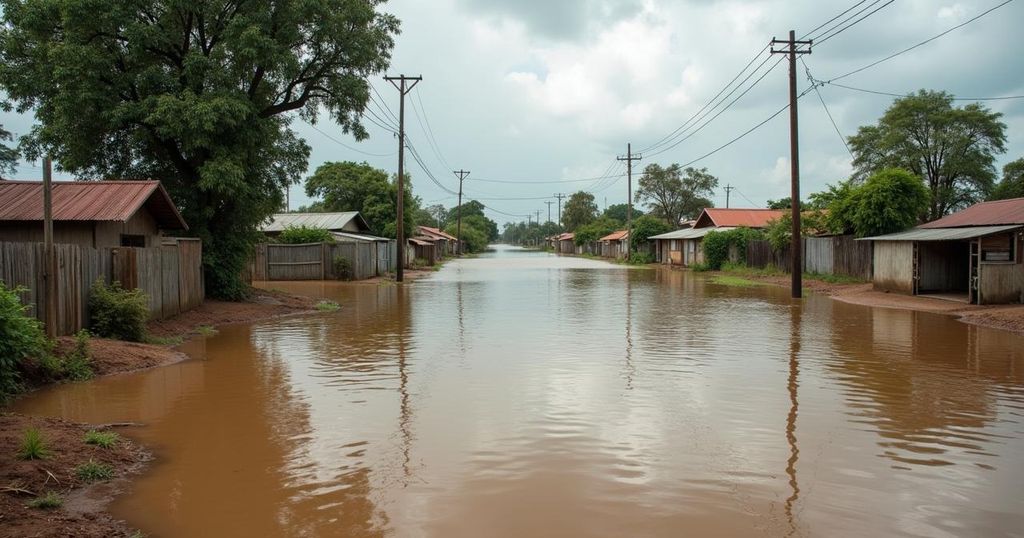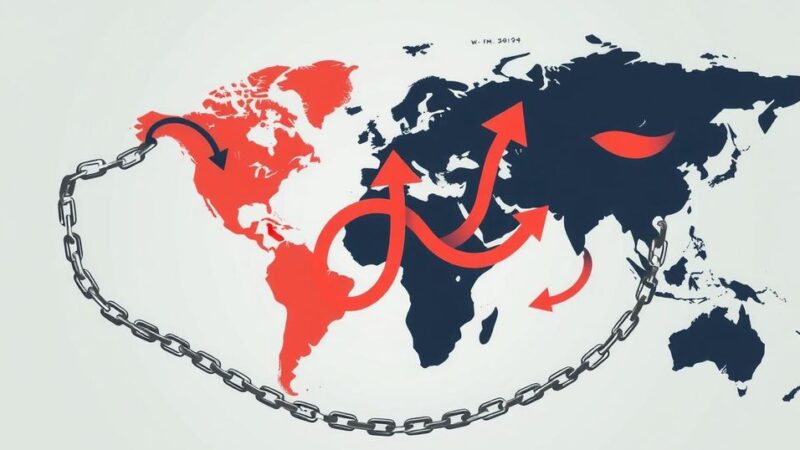The United Nations reports that flooding in South Sudan has affected approximately 893,000 individuals, displacing over 241,000. The country is experiencing one of its worst flooding disasters in decades, exacerbated by climate change and compounded by ongoing political instability. The humanitarian crisis highlights the urgent need for international assistance as the nation faces severe economic challenges and food insecurity.
Recent reports from the United Nations Office for the Coordination of Humanitarian Affairs (OCHA) indicate that the flooding in South Sudan has impacted approximately 893,000 individuals, resulting in the displacement of over 241,000 people. The humanitarian crisis has escalated, with the country facing some of the worst flooding it has encountered in decades, exacerbated by climate change. OCHA has highlighted that heavy rainfall has disrupted 15 significant supply routes, impeding access to affected regions. The flooding has specifically affected 42 out of 78 counties, particularly in Unity and Warrap states, where more than 40 percent of those impacted reside. Additionally, many displaced individuals have sought refuge on higher ground across 16 counties and the Abyei region, an area disputed between South Sudan and Sudan. The ongoing challenges in South Sudan are compounded by long-standing instability, economic struggles, and the fallout of the longstanding South Sudanese and Sudanese conflicts. The World Bank has recently projected that around nine million people, including refugees, will face critical needs in the coming year, particularly influenced by severe food insecurity and ongoing conflict within the region. Furthermore, the ongoing political uncertainty, marked by delays in fulfilling the transitional peace agreement established in 2018, has prompted frustration among both the citizens and the international community regarding the commitment of the leadership to a path towards democracy. Current estimates reflect that vital oil resources, once a significant revenue source for the nation, have been severely impacted due to infrastructure damage resulting from the ongoing conflict in Sudan.
South Sudan, which gained independence from Sudan in 2011, has continually struggled with internal instability, conflict, and environmental challenges, particularly droughts and floods. The country is frequently subjected to humanitarian crises, which have been worsened by climate change and ongoing political strife. The recent flooding has compounded these issues, leading to significant displacement and humanitarian needs across the nation. With an estimated nine million individuals projected to face critical needs in 2024, these challenges highlight the urgency for international aid and intervention.
In summary, the flooding crisis in South Sudan has significantly impacted nearly 893,000 people, leading to the displacement of over 241,000 individuals. This disaster reflects the ongoing vulnerabilities of the country to climate-related events, exacerbated by internal conflicts and political instability. The international community, alongside humanitarian organizations, faces increasing pressure to address the urgent needs of the affected populations while calling for accountability and action from South Sudan’s leadership.
Original Source: www.barrons.com







